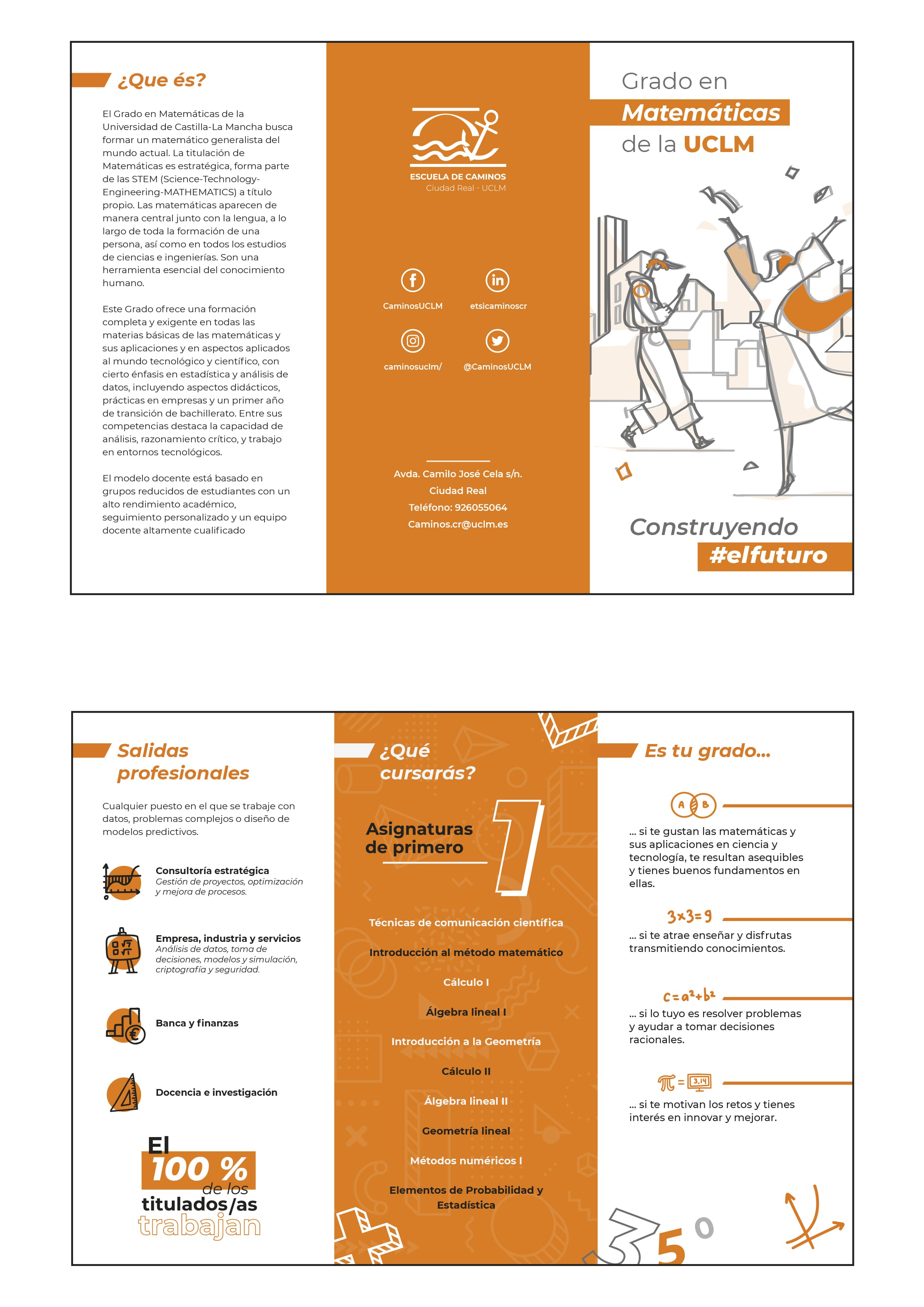The Degree in Mathematics seeks to train a generalist mathematician of today's world, who has solid knowledge about numbers, modeling, algebra, geometry, calculus, numerical calculation, optimization, probability, statistics, data analysis, decision making, etc.; who knows how to relate the different knowledge to each other, who knows its history, its possibilities of application to real problems, the way of communicating them, and its social value.
And skills of abstraction, modeling of real problems, creativity in problem solving, data processing, deductive and inductive reasoning, analysis, synthesis, algorithmic and critical thinking, ability to work in interdisciplinary teams, and to adapt to changes, aware that perhaps when working you will have to handle innovative tools.
Un grado clásico y actual, humanista y técnico, coherente y crítico, que cuenta con un primer año de transición de bachillerato, completo, pero con cierto énfasis en estadística y análisis de datos, con prácticas en empresas y aspectos didácticos.
Classic and current career opportunities
This profile of Graduate in Mathematics gives its graduate labor flexibility that allows them to be inserted in a wide range of jobs, of which information technologies and business management, banking and finance, teaching (university and secondary education), research in public and private centers and consulting.
In recent years, mathematicians have seen their range of job opportunities expand and the interest of companies in them skyrocket. The explanation for the demand for these professionals lies in the digital transformation together with the new market priorities. Businesses need professionals capable of getting the most out of large information bases, which has given rise to data analyst positions in which there is a large supply to be filled by mathematicians. Demand is growing in many areas. For example, banking and finance, to make investment forecasts or develop financial advisory programs; network security to get secure passwords; logistics, in the part of operational organization and control of the merchandise; as a data analyst in companies focused on B2C business and consumer goods; in the field of programming, since the logic of structured languages responds very well to the technique of mathematics.
In recent years, mathematicians have seen their range of job opportunities expand and the interest of companies in them skyrocket. The explanation for the demand for these professionals lies in the digital transformation together with the new market priorities. Businesses need professionals capable of getting the most out of large information bases, which has given rise to data analyst positions in which there is a large supply to be filled by mathematicians. Demand is growing in many areas. For example, banking and finance, to make investment forecasts or develop financial advisory programs; network security to get secure passwords; logistics, in the part of operational organization and control of the merchandise; as a data analyst in companies focused on B2C business and consumer goods; in the field of programming, given that the logic of structured languages responds very well to the technique of mathematics.
The unemployment rate of graduates in Mathematics is 7.54%, according to a study job placement prepared by the Conference of Deans of Mathematics (CDM). Likewise, the report reveals that the unemployment rate drops to 4.64% after two years of completing the studies and almost full employment is registered - 96.7% - once the five years have passed.
Why this degree?
The Mathematics degree is strategic, it forms part of the STEM (Science-Technology-Engineering-MATHEMATICS) in its own right. Mathematics appears centrally along with language, throughout a person's entire education, as well as in all science and engineering studies. They are an essential tool of human knowledge.
This degree offers a complete and demanding training in all the basic subjects of mathematics and its applications and in aspects applied to the technological and scientific world, with some emphasis on statistics and data analysis, including didactic aspects, internships in companies and a first year of transition from high school. Among its skills, the ability to analyze, critical reasoning, and work in technological environments stands out.
The teaching model is based on small groups of students with high academic performance, personalized monitoring and a highly qualified teaching team.

Note: the Degree has already received a favorable implementation report from the evaluation agency.